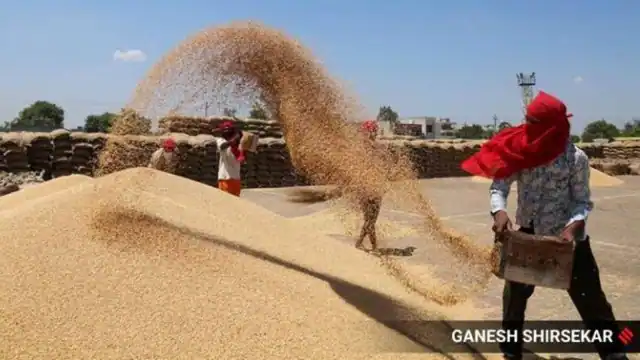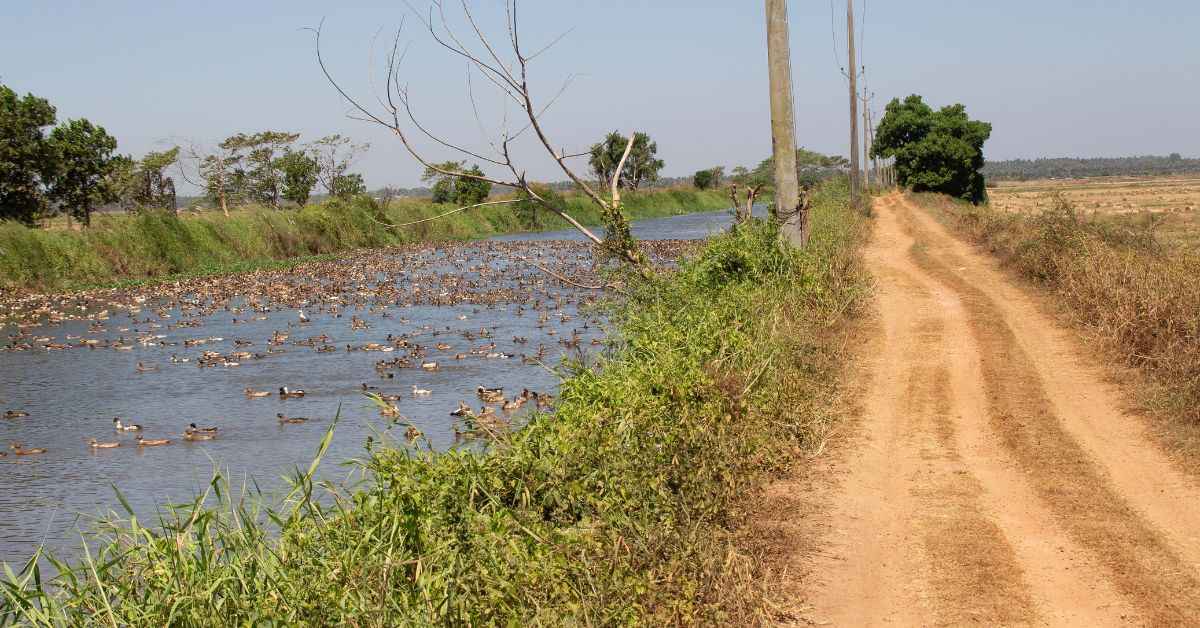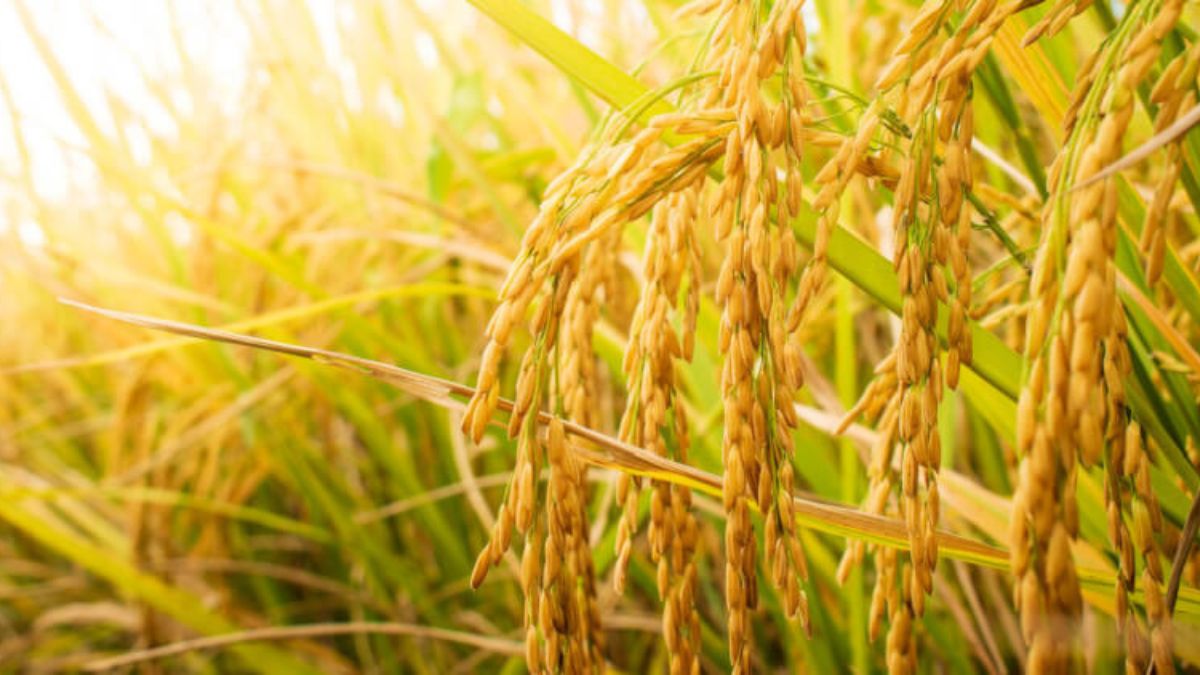Tags
For direct-seeded rice, zero-tillage wheat, RiceTec & Mahyco form joint venture
More than increasing India’s rice and wheat production, Paryan JV aims to reduce the water, labour and fuel consumption, as well as greenhouse gas emissions, in cultivating the two cereal crops.

“Paryan is open to licensing our mutant Imazethapyr-tolerant trait in rice and wheat to other seed companies wanting to introduce it into their own hybrids or varieties,” added Barwale.
Rice and wheat breeding-cum-research in India has traditionally been a virtual public sector monopoly.
But now, two private sector seed majors – the Alvin (Texas)-headquartered RiceTec Inc. and Jalna (Maharashtra)-based Mahyco Pvt. Ltd – have come together to form a joint venture (JV) for making the rice-wheat cropping system “more climate-smart and sustainable”.
Paryan Alliance Pvt. Ltd, as the 50:50 JV is called, will focus on technologies for farmers to grow rice by direct seeding (instead of transplanting and flooding of field) and wheat through zero tillage (without burning the leftover stubble from the paddy crop and ploughing the field before sowing).
These include RiceTec’s proprietary ‘FullPage’ direct seeded rice (DSR) cropping solution and the ‘FreeHit’ zero tillage (ZT) technology that Mahyco has developed in collaboration with Geneshifters LLC, an agri-biotech company at Pullman (Washington), US.
“Our technologies are complementary: Wheat is sown after harvesting of rice in about 12 million hectares area, from Punjab and Haryana to eastern Uttar Pradesh (UP) and Bihar. Paryan will work with farmers of the two large-acre crops, providing them access to both FullPage and FreeHit,” Ajai Rana, managing director of Savannah Seeds Pvt. Ltd, the South Asia subsidiary of RiceTec, told The Indian Express.
Mahyco had incidentally, in 1997, formed a similar JV with Monsanto to introduce the US life sciences giant’s ‘Bollgard’ genetically modified (GM) Bt cotton technology, which led to a near-trebling of India’s production of the natural fibre between 2002-03 (the commercialisation year) and 2013-14.
The Paryan JV aims not at increasing the country’s rice and wheat production as much as reducing the water, labour and fuel consumption, and also greenhouse gas emissions, in cultivating the two cereal crops.
The rice hybrids of RiceTec/Savannah (‘Sava 134’ and ‘Sava 127’) and Mahyco’s wheat varieties (‘Goal’ and ‘Mukut’) contain a mutated gene, whose altered DNA sequence allows farmers to spray Imazethapyr, a herbicide that can control a range of broadleaf, grassy and sedge weeds.
Imazethapyr can’t be used on normal rice or wheat, as the chemical does not distinguish between the crop and invasive plants. The mutated gene in the hybrids/varieties bred by Savannah and Mahyco enable their plants to “tolerate” the herbicide’s application, so that it only kills the weeds.
“We have introduced the herbicide-tolerance trait through mutation breeding, not GM. There’s no foreign gene here (unlike with Bt cotton or the still-to-be-approved GM mustard),” Rana pointed out.
Traditional rice cultivation is both water- and labour-intensive. It entails preparing nurseries, where the paddy seeds are first raised into young plants that are uprooted and re-planted around 30 days later in the main field. The field in which the seedlings are transplanted is “puddled” or tilled in standing water to churn the soil and make it soft. For the initial three weeks or so after transplanting, farmers have to irrigate every 1-2 days to maintain a water depth of 4-5 cm. This prevents the growth of weeds – such as Echinochloa colona (commonly called jangli chawal) and Cyperus rotundus (motha) – during the crop’s early stage.
DSR saves roughly 30% water, by dispensing with puddling, transplanting and flooding. It replaces water (a natural herbicide) with Imazethapyr. RiceTec’s FullPage technology incorporates the herbicide-tolerance trait as well as DSR-compatible plant genetics and seed treatment solutions.
“Germination is generally poor in DSR. Our rice hybrids are bred for DSR. They have strong roots and stalks, with higher plant populations (35-40 per square meter, as against 15-20 in normal transplanting). We are also providing ‘Squad’, a seed treatment solution of micro-nutrients, fungicide and insecticide that helps in germination and protecting the young plants from soil-borne diseases and pests,” added Rana.
In wheat, farmers not only burn the stubble from the previously-harvested paddy crop, but also plough the field 3-4 times – twice using a harrow or cultivator, followed by one irrigation and either one more ploughing with a rotavator or two with harrow/cultivator.
“The ploughings are basically for managing the paddy stubble and weeds, which, in wheat, include Phalaris minor (gulli danda) and Chenopodium album (bathua). With FreeHit ZT technology, you can sow the wheat seeds directly without any stubble burning or land preparation. The weeds are taken care of by Imazethapyr along with Metribuzin, a selective herbicide already used in wheat,” said Shirish Barwale, managing director, Mahyco.
In ZT, farmers first use a tractor-mounted Super Seeder machine with rotavator that cuts the standing paddy stubble and mixes it in the soil. They sow wheat after that with a regular seed-cum-fertiliser drill and apply the herbicides when the crop is about 25 days old.
The RiceTec/Savannah rice hybrids were planted in 4,000 acres each of farmers’ fields in Punjab and Haryana, 3,000 each in Madhya Pradesh and Chhattisgarh, and 1,000 acres in western UP during this kharif season. Mahyco is awaiting regulatory clearance for the launch of ‘FreeHit’ ZT wheat in the ensuing rabi season.
“Paryan is open to licencing our mutant Imazethapyr-tolerant trait in rice and wheat to other seed companies wanting to introduce it into their own hybrids or varieties,” added Barwale.
https://indianexpress.com/article/india/for-direct-seeded-rice-zero-tillage-wheat-ricetec-mahyco-form-jv-9487745/Published Date: August 1, 2024






